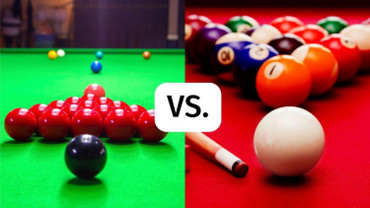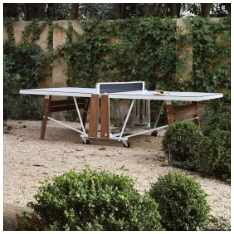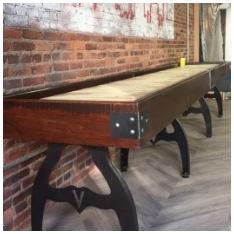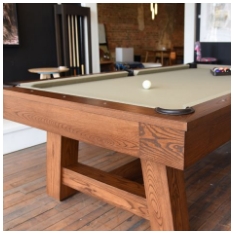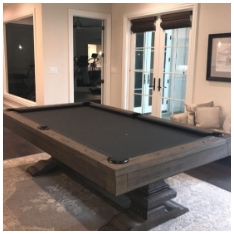Cue sports such as snooker and pool have long been popular worldwide, with millions of players enjoying them both recreationally and professionally. While both games require precision, strategy, and skill, they differ in terms of difficulty.
To answer this, it is important to explore the origins of each sport, the differences in rules and gameplay, the equipment used, and the physical and mental skills required. By understanding these factors, players can see why some people find snooker more challenging, while others argue pool requires sharper instincts and faster decisions.
Origins and Evolution of Snooker and Pool
The Birth of Snooker
Snooker was developed in the late 19th century by British Army officers stationed in India. It quickly became popular in the United Kingdom and later spread globally. The game’s long tables, small pockets, and strict scoring system made it a challenging cue sport from the start.
The Rise of Pool
Pool, often called pocket billiards, originated in the United States in the 19th century. Unlike snooker, pool tables are smaller, and there are several variations such as 8-ball, 9-ball, and straight pool. Pool’s accessibility and faster gameplay have made it a popular choice in bars and recreational halls worldwide.
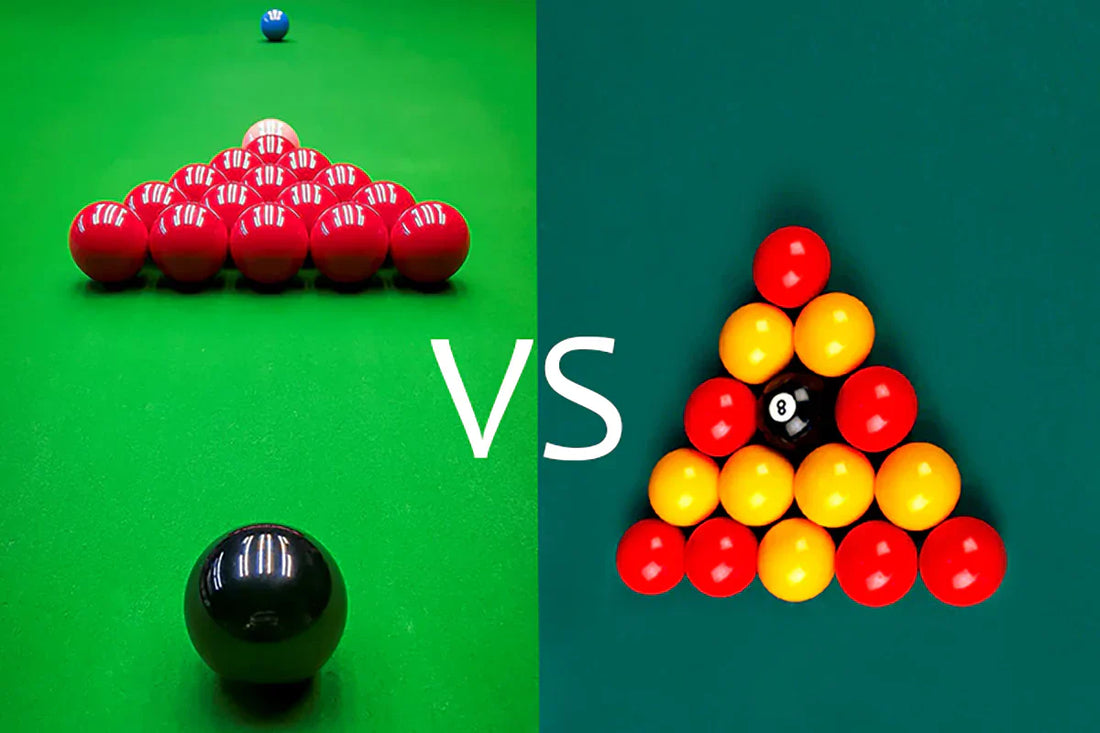
Comparing Table Size and Equipment
One of the most noticeable differences between snooker and pool is the table size.
- Snooker tables: Typically 12 feet by 6 feet with small pockets.
- Pool tables: Usually 7 to 9 feet long with larger pockets.
The larger playing surface and tighter pockets of snooker require more precision in shot-making. In contrast, pool tables allow quicker games and more forgiving shots, but demand strong tactical awareness depending on the variation being played.
Cue Differences
- Snooker cues are thinner with smaller tips (around 9–10 mm), designed for delicate control and spin.
- Pool cues are thicker with larger tips (12–13 mm), suited for powerful breaks and shots.
The design of each cue influences the difficulty of mastering the sport.
Rules and Gameplay Complexity
Snooker Rules and Scoring
Snooker involves 21 colored balls in addition to the white cue ball. Players must pot reds followed by a chosen color, alternating in sequence. Each color carries a different point value, and matches can last for hours. Success requires advanced planning and precise cue ball positioning.
Pool Rules and Variations
Pool rules vary depending on the format:
- 8-ball pool: Players pot solids or stripes and finish by sinking the black ball.
- 9-ball pool: Balls must be potted in sequence from 1 to 9.
- Straight pool: Players call their shots and aim for a predetermined number of points.
Pool games are generally shorter and easier to understand, but the variations demand adaptability and quick decision-making.
Skill Requirements in Snooker vs Pool
Technical Precision in Snooker
Snooker demands advanced cue ball control. The long distances between balls on a large table make positional play extremely challenging. Players must also consider safety shots to prevent opponents from gaining an advantage.
Strategic Awareness in Pool
Pool emphasizes shot-making speed and tactical positioning. In formats like 9-ball, players must anticipate future shots while maintaining aggressive play. Breaking well is a critical skill in pool, often setting the tone for the game.
Mental Endurance
- Snooker requires intense concentration for extended periods, often hours per match.
- Pool requires quick reflexes and the ability to stay composed under fast-paced pressure.
Professional Scene and Competitive Difficulty
Snooker at the Highest Level
Professional snooker tournaments, such as the World Snooker Championship, highlight the extreme difficulty of the game. Matches are long, and even small mistakes can cost frames. The global snooker circuit is known for its technical depth and strategic demands.
Pool Competitions
Professional pool, particularly 9-ball, is faster and more dynamic. Players often travel worldwide to compete in major events such as the World Pool Championship and the Mosconi Cup. While less physically demanding in terms of table size, pool at the professional level requires nerve and accuracy under time pressure.
Accessibility for Beginners
Why Beginners Prefer Pool
Pool is generally easier for newcomers because of the smaller table, bigger pockets, and simpler rules. It is widely available in recreational venues, making it more approachable for casual players.
Why Snooker Intimidates Beginners
Snooker’s complexity can be overwhelming for beginners. The large table size makes potting balls difficult, and the scoring system requires more effort to master. As a result, many players view snooker as a sport for dedicated enthusiasts.
Snooker vs Pool: Which Cue Sport is Harder to Play?
When comparing the two sports, the answer depends on perspective:
- Snooker is harder because of the table size, pocket tightness, longer matches, and demand for precision. Even professional pool players often admit snooker requires a higher technical ceiling.
- Pool is harder in terms of variety, speed, and tactical adjustments across multiple formats. The mental quickness required in 9-ball or straight pool presents its own unique challenges.
Ultimately, the difficulty depends on whether a player struggles more with technical endurance (snooker) or fast-paced decision-making (pool).
Conclusion
Snooker vs Pool: Which Cue Sport is Harder to Play?” does not have a universal answer. Snooker is often considered the more technically demanding sport due to its large table, smaller pockets, and strict scoring system. Pool, however, requires faster decision-making, adaptability across multiple variations, and nerves of steel in competitive settings.
For beginners, pool provides an easier entry point. For players seeking a test of precision and patience, snooker offers unmatched depth. Both sports challenge players in unique ways, ensuring their continued popularity across the globe.
